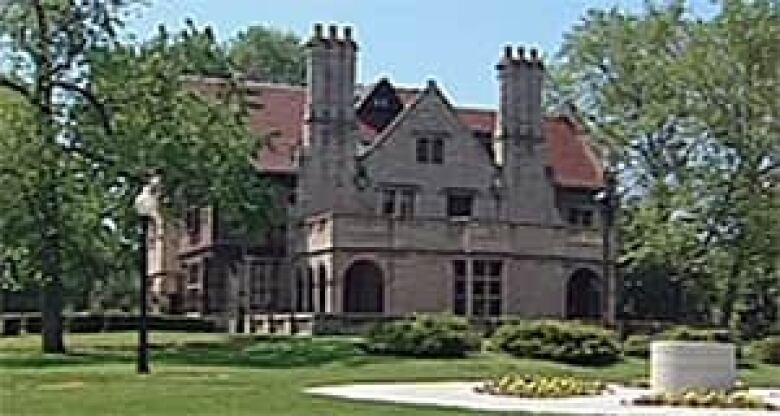Cronut burger not alone: 4 Canadian events hit by food woes
From papal visits to church dinners, prepared food can pose problems
The premature demise of the cronut burger at Toronto's Canadian National Exhibition is not the first time that food prepared for a festival or special event has caused problems.
The much-promoted cronut burger was sold for only a few days at the annual Toronto event, until reports emerged that a large number of people who had eaten it had fallen ill.
An investigation by Toronto health officials determined that some of the collected food samples had been contaminated by Staphylococcus aureus toxin, which originated from the maple bacon jam used on the product.
Here's a list of some past Canadian cases in which health officials have been called in to find out what made people fall ill at special events, or to prevent potential problems:
Police officers fall ill at 1984 papal visit
In September 1984, Pope John Paul II spent 12 days in Canada, including a visit to Toronto and also to Midland, Ont.

Hundreds of OPP officers who were part of the security detail in Midland ended up sick with salmonella poisoning, which health officials would eventually conclude was likely caused by contaminated sandwiches.
Those officers suffered diarrhea and cramps. At least a handful had to spend time in hospital.
So many officers got sick that George Taylor, then the solicitor general of Ontario, suggested to reporters that it might be prudent to ensure that several caterers provided food for events to prevent similar problems in future.
You can watch a 1984 report that CBC News filed on the incident by clicking on the video at the top of this page.
Inspectors bleach egg salad sandwiches
In June 2006, health inspectors used bleach to destroy egg salad sandwiches that were set to be sold at the annual Art in the Park event in Windsor, Ont.

The sandwiches had been prepared by the Friends of Willistead, a volunteer group that raises funds for the upkeep and operation of a historic manor home.
When health inspectors showed up at the festival on a Saturday morning, they found out the eggs had been boiled at private residences, rather than on site. That was not allowed and both the sandwiches and all the remaining eggs had to go.
Brenda Clayton, the president of the Friends of Willistead, said the move was upsetting.
"It seems like a storm in a teacup … all this commotion about boiling eggs," Clayton told CBC News at the time.
But health officials said they needed to do what they did in order to ensure the event was safe.
Dozens fall ill at food-tasting event
Health officials in Ontario's Lambton County were called in to investigate after dozens of people reported getting sick after eating at a charity food-tasting event in May 2010.
An investigation later confirmed 43 cases of Cyclospora infection, which was linked to the "cool pesto crunch" appetizer that had been served at the event.
Officials said more than 200 people reported symptoms that were consistent with that of Cyclospora infection.
The symptoms typically occur about a week after a person comes into contact with food or water that is contaminated with human feces.
Bacteria strikes church dinner
More than 200 people reported experiencing symptoms of gastroenteritis after purchasing roast beef meals from a church in Malpeque, P.E.I., in April 2012.
Health officials tested food samples that were left over from the dinner and found Clostridium perfringens, a bacteria which they soon identified as the likely cause of the illness.
Officials said the bacteria, if present, can grow if beef is not kept at the proper temperature after cooking. A toxin that is produced when the bacteria grows can cause abdominal cramps, diarrhea and other gastroenteritis symptoms.
Dr. Lamont Sweet, the province's deputy chief health officer, said that there was no intent to issue a fine, as the people who organized the takeout dinner were upset enough.
